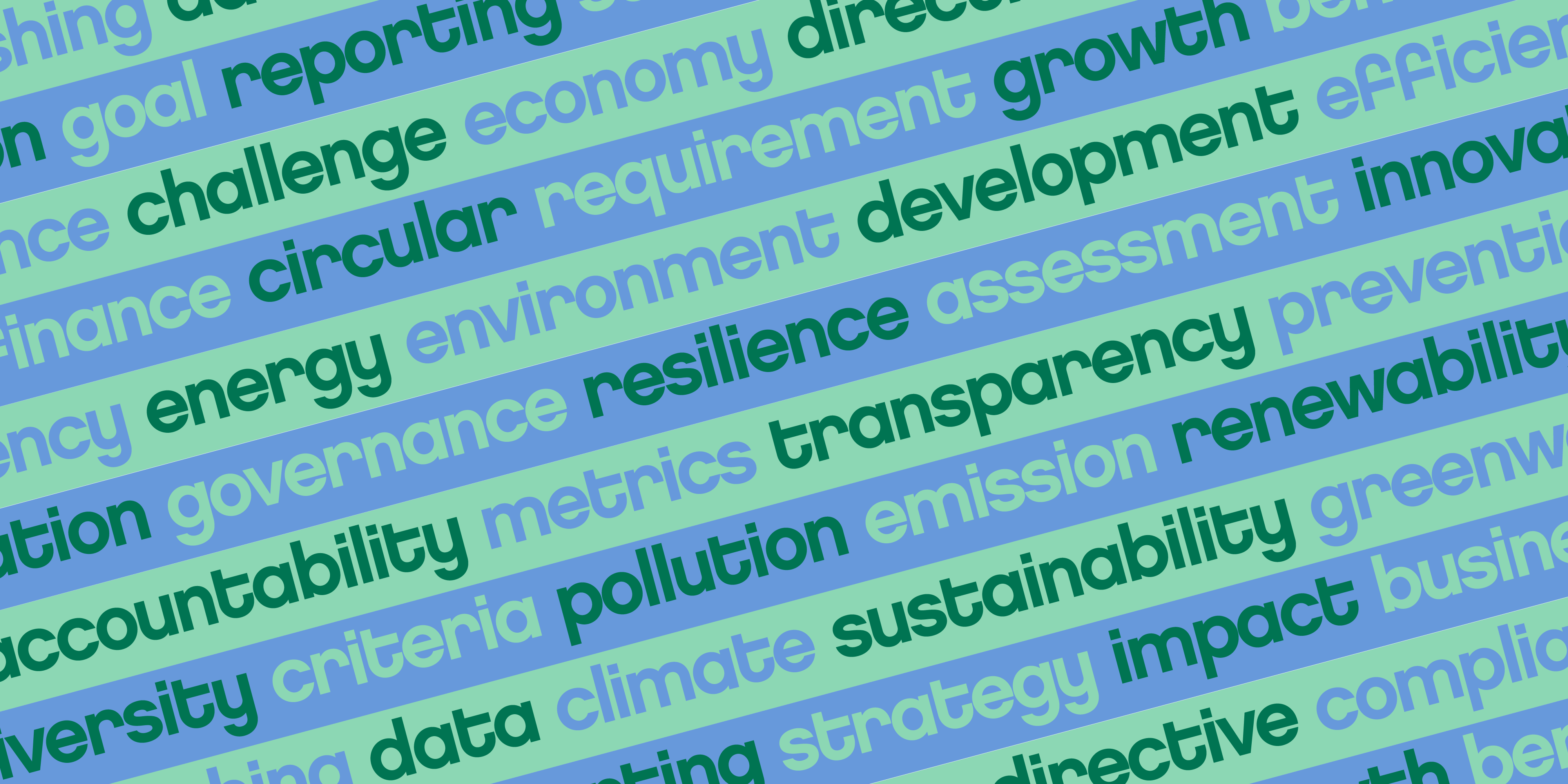
Sustainability
6 minute read
Greenwashing in the spotlight: will the green come out in the wash?
Sustainability and “going green” have become must-have elements in business strategies, policies, products and services – not only because it is the right thing to do, but because consumers increasingly demand it and use their spending power accordingly. It is then no wonder that greenwashing has become increasingly rife, particularly as there has been little in the way of rules and regulations to keep it in check. As this is now set to change with a regulatory crackdown on greenwashing, it is a time of reckoning for businesses and the sustainability claims they make.
What is greenwashing?
The simple definition of greenwashing is making a company or product appear environmentally friendly, without meaningfully reducing its environmental impact. According to disclosure group CDP, greenwashing is “the practice of falsely promoting an organization’s environmental efforts, or spending more resources to promote the organization as green than are spent to actually engage in environmentally sound practices”.
And the reason it is happening is because sustainability sells. “Companies make these claims because environmental issues are important for consumers,” says Peter Holdorf, Public Affairs Manager at Neste, a global leader in the field of renewable diesel and sustainable aviation fuel, as well as renewable feedstock solutions for various polymers and chemicals industry uses.
And talk is, of course, cheaper and easier than action. “Undertaking genuine initiatives to improve the sustainability of your products can be difficult, costly and require significant commitment of time, resources and skills,” says Holdorf.
For those companies that are genuine, and back their green claims with measurable targets and concrete, meaningful action, the wild west of greenwashing creates an unfair and uneven playing field, while it muddies the waters for consumers wanting to make more sustainable choices.
Moreover, without clear rules and definitions, another unhelpful trend called greenhushing has grown on the flip side of greenwashing: companies staying quiet about their genuine green claims and achievements to avoid the risk of being wrongly shot down for greenwashing.
First step to tackle greenwashing: defining “green”
A key part of putting a stop to greenwashing is to raise awareness of what “green” means in the context of what is being sold, giving consumers the tools to more easily see the wood from the trees and ask the right questions.
“The more we can do to create tangible rules that define “green” products in a specific, narrow context, the easier it will be to tackle,” says CDP spokesperson Adam Wentworth. “The more we allow green to be defined widely, the easier it will be for greenwashing behavior to take place.”
New rules and regulations aimed at tackling greenwashing are now coming out all over the world, and with that clarifications of what is green and what isn’t – in the same way that claims around health and nutrition were successfully tightened up years ago, putting a sock in the most unhelpful and unfettered health-related claims used to market foods.
The publication of the International Sustainability Standards Board’s (ISSB) first standards in June 2023 aims to set a common language for environmental disclosures, which, in turn, ensures data is standardized and comparable.
The EU’s European Sustainability Reporting Standards (ESRS) and Green Taxonomy – which sets out what constitutes a green investment – are further examples of how the market is moving towards a set of established, harmonized standards.
Regulations are catching up with greenwashing
The European Commission (EC) has proposed stricter regulations to clamp down on misleading and vague claims about the sustainability of products and services, by banning the use of widely – and largely wrongly – used terms such as "environmentally friendly", "eco-friendly", "eco", "green", "biodegradable", "carbon neutral" unless the product or service has been official recognized as part of an eco-labelling scheme. Use of the term “net zero” will only be acceptable if there are clear, objective and verifiable commitments and targets, which are being independently monitored.“
The regulatory framework to address greenwashing is now catching up, and initiatives such as the UK CMA’s Green Claims Code and EU Green Claims Directive set out clearly what should be considered by all businesses if they wish to make any product claims relating to environmental impact or benefits,” Wentworth says.“
Even though the EU’s rules are not yet in force, they are likely to be a model for other jurisdictions, and set high standards which businesses must get to grips with sooner rather than later.”
There are other EU regulations that also relate to greenwashing, such as the Unfair Commercial Practices Directive, which prevents companies from making claims that a product is green when it is not. Moreover, the EC wants to update both this Directive and the Consumer Rights Directive, to better inform consumers about the durability of the products they are purchasing.
Beyond the EU, authorities all over the world taking action to stop greenwashing:
In the US, the Federal Trade Commission (FTC) is reviewing its Green Guides, which aim to help marketers avoid making environmental marketing claims that are unfair or deceptive.
In the UK, the Competition and Markets Authority has introduced a Green Claims Code, while the Financial Conduct Authority is consulting on Sustainability Disclosure Requirements.
Regulators in countries such as South Korea, Australia and New Zealand are also cracking down on misleading corporate climate claims.
Leveling the sustainability playing field with a hard line on greenwashing
“Currently, almost 50% of green claims are misleading or false,” says Holdorf. This makes it very difficult to sort the wheat from the chaff and to know which green sticks and which will simply run in the wash. “How can consumers support sustainability if so many claims are false?” he asks.
Where there are real sustainability benefits available to consumers, he says: “It’s really important that we have a level playing field so those benefits can be realized.”
We can now at long-last start to see this happening. The new greenwashing regulations and a new era of transparency on green claims means in the short-term businesses need to take a hard look at the green claims and terminology they use in relation to their products and services, and make the necessary adjustments before they suffer fines and reputational damage.
In the long-run, it will be a victory for companies that are genuine in their sustainable offerings and approach, and the customers who want to make more sustainable choices.
Do you know all the colors of unethical marketing practices?
Greenwashing: misleading consumers regarding environmental practices or the eco-benefits of a product or service.
Pink washing (or rainbow washing): supporting LGBT ᐩ rights to distract public attention or justify other negative actions or policies.
Blue washing: signing up to UN principles without introducing any aligning policy reforms, misleading the public about responsible social and economic practices.
Gray washing: setting up strategies and policies that seem to be aligned with ESG principles, but are too unambitious or worded in such a way that there is no meaningful impact.
Credits:
Mike Scott, An award-winning business and environmental journalist whose work has appeared in publications including the Financial Times, the Guardian and Forbes.





